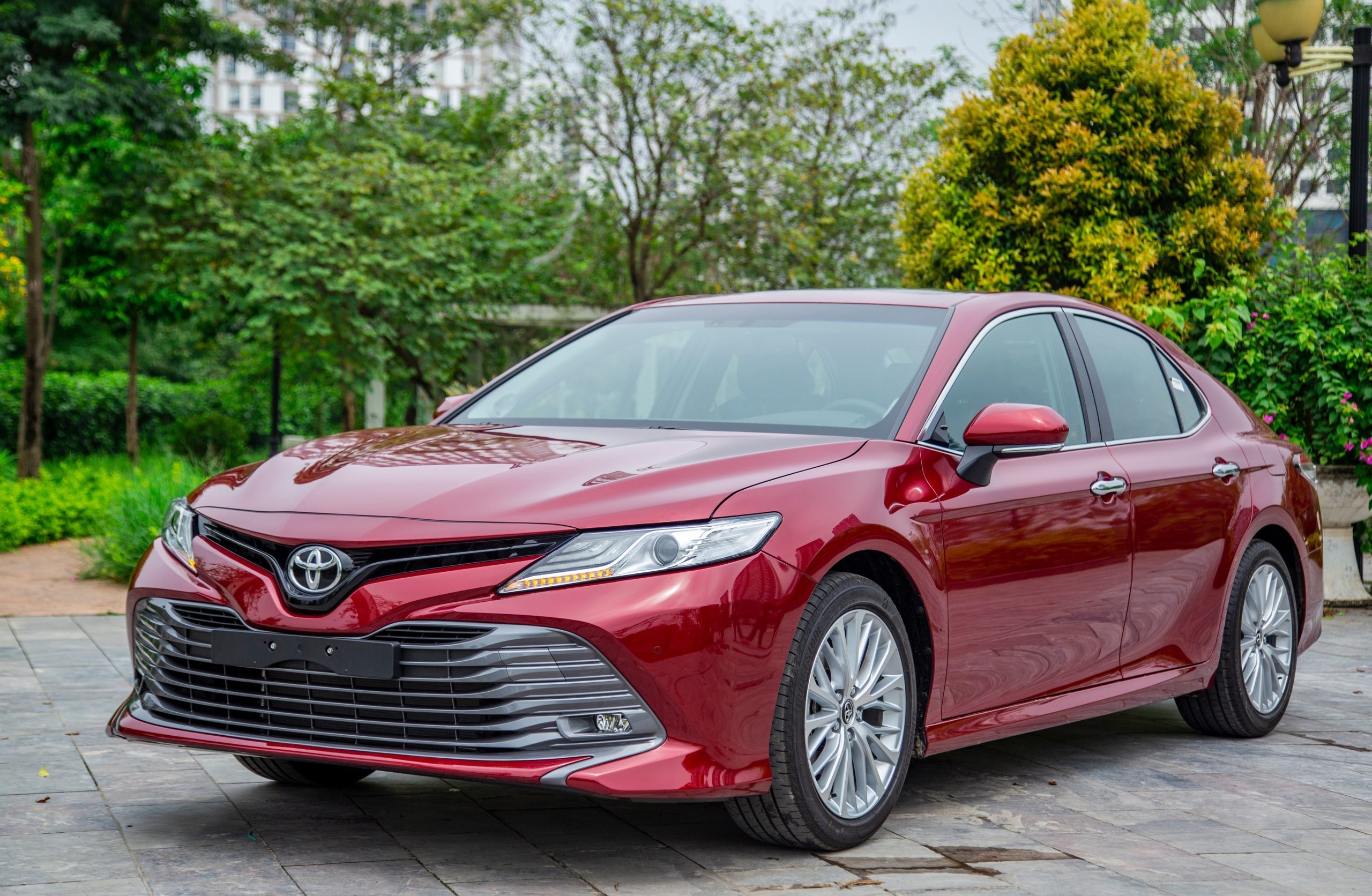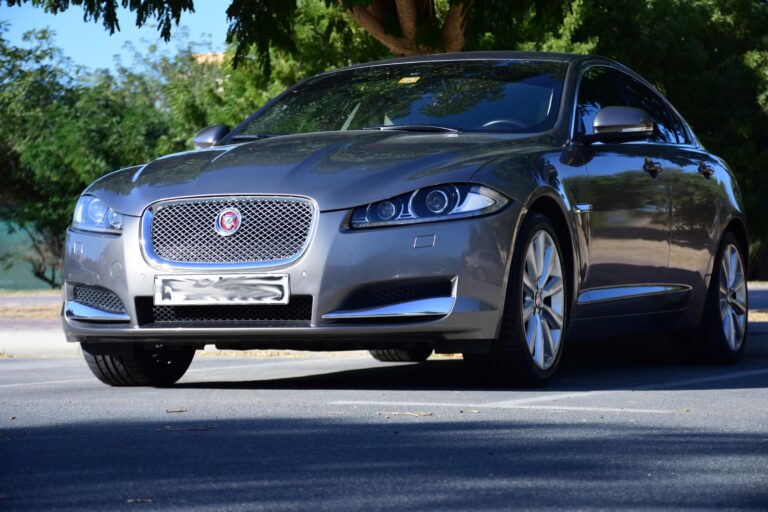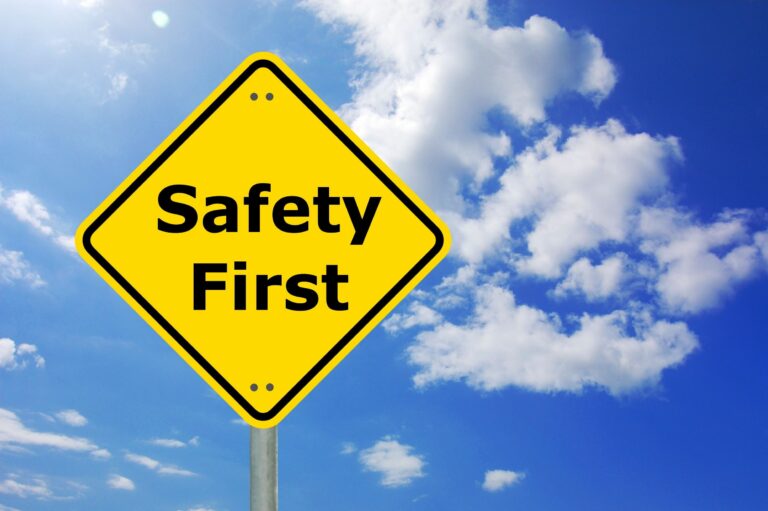Car Rim Brands: Your Comprehensive Guide to Performance, Style, and Safety
Car Rim Brands: Your Comprehensive Guide to Performance, Style, and Safety cars.truckstrend.com
The wheels of a vehicle are often the first thing people notice, a statement of personal style and a critical component of its overall aesthetic. But beyond their visual appeal, car rims – often interchangeably referred to as wheels – play an indispensable role in a vehicle’s performance, handling, safety, and even fuel efficiency. Far from being mere decorative elements, rims are precision-engineered components that connect your tires to your car’s axle, bearing the brunt of road forces and influencing everything from braking response to cornering stability.
In the vast automotive aftermarket, the world of car rim brands is incredibly diverse, offering an astonishing array of designs, materials, and technologies tailored for every driving need and aesthetic preference. From the rugged durability required for off-road adventures to the lightweight precision demanded by competitive racing, and the luxurious elegance sought by high-end vehicle owners, there’s a brand and a rim designed for every purpose. Understanding these brands and what sets them apart is crucial for any car enthusiast or owner looking to upgrade, replace, or simply better appreciate the engineering marvels that support their ride. This comprehensive guide will delve into the multifaceted world of car rim brands, helping you navigate the options and make informed decisions for your vehicle.
Car Rim Brands: Your Comprehensive Guide to Performance, Style, and Safety
Beyond Aesthetics: The Crucial Role of Car Rims
While the visual impact of a well-chosen set of rims is undeniable, their functional importance far outweighs their cosmetic contribution. Rims are integral to the vehicle’s dynamics and safety profile.
- Performance Enhancement: Lighter rims, especially those made from forged alloys, reduce unsprung weight – the weight not supported by the suspension. This reduction significantly improves handling, steering response, and acceleration. It allows the suspension to react more quickly and effectively to road imperfections, leading to a smoother ride and better tire contact with the road.
- Safety and Braking: Rims must withstand immense forces during braking, accelerating, and cornering. A strong, well-designed rim provides a stable platform for the tire, ensuring consistent contact with the road surface, which is vital for effective braking and stability. Proper heat dissipation from the brakes, often aided by rim design, also prevents brake fade.
- Fuel Efficiency: The weight of a rim directly impacts fuel consumption. Lighter rims require less energy to rotate, leading to marginal but noticeable improvements in fuel economy over time.
- Durability and Longevity: Rims are exposed to harsh elements, potholes, and curb strikes. High-quality rims are engineered to resist corrosion, bending, and cracking, ensuring a longer lifespan and reducing the need for frequent replacements or repairs.
- Personalization and Resale Value: A unique set of rims can dramatically alter a vehicle’s appearance, reflecting the owner’s personality. Furthermore, a reputable set of aftermarket rims can sometimes add to the resale value of a car, especially if they are well-maintained and from a desirable brand.

Rims are generally categorized by their manufacturing process and material:
- Steel Rims: Economical, durable, and common on base models and winter setups. They are heavy and less aesthetically pleasing.
- Cast Alloy Rims: The most common type for aftermarket and OEM. Molten aluminum is poured into a mold. They are lighter than steel but can be brittle under extreme impact.
- Flow-Formed (or Rotary Forged) Rims: A hybrid process where a cast wheel is spun and heated while rollers apply pressure to the barrel, compressing and stretching the aluminum. This results in a lighter, stronger, and more ductile rim than standard cast.
- Forged Rims: Made from a solid block of aluminum pressed under extreme pressure. This creates a very dense, strong, and lightweight rim, often found on high-performance and luxury vehicles. They are significantly more expensive.

Navigating the Market: Top Car Rim Brands and Their Specialties
The market for car rims is vast, populated by hundreds of brands, each with its own philosophy, design language, and target audience. Here’s a look at some of the most reputable and popular car rim brands, categorized by their primary focus:

Performance & Racing Elites: Precision and Lightweight
These brands are synonymous with motorsports, engineering rims that prioritize minimal weight, maximum strength, and optimal heat dissipation.
- BBS: A German powerhouse, BBS is legendary for its multi-piece and forged wheels, known for their iconic mesh designs and unparalleled performance in motorsport. They are a benchmark for quality and engineering excellence.
- Rays (Volk Racing / Gram Lights): From Japan, Rays Engineering produces some of the most sought-after forged wheels globally under their Volk Racing brand (e.g., TE37, CE28) and high-quality cast/flow-formed wheels under Gram Lights. Renowned for their lightweight, strength, and iconic designs.
- OZ Racing: An Italian brand with a deep heritage in Formula 1 and rally racing. OZ wheels are known for their sporty designs, lightweight construction, and robust performance, available in both cast and forged options.
- Enkei: Another Japanese giant, Enkei offers a wide range of performance-oriented cast and flow-formed wheels that balance quality, weight, and affordability, making them popular among enthusiasts and racers alike.
- Work Wheels: A Japanese manufacturer specializing in multi-piece wheels, offering an extensive range of customizable designs for both performance and aesthetic appeal. Their craftsmanship and variety are highly regarded.
Luxury & Custom Lifestyle: Exclusivity and Bespoke Design
These brands cater to the high-end market, offering exquisite designs, premium finishes, and often bespoke customization options for luxury vehicles, exotics, and show cars.
- HRE Performance Wheels: An American brand at the pinnacle of custom forged wheels. HRE offers unparalleled design freedom, aerospace-grade materials, and meticulous craftsmanship, resulting in some of the lightest and strongest wheels available.
- Vossen Wheels: Known for their distinctive concave designs and aggressive fitments, Vossen offers a range of flow-formed and forged wheels that emphasize style and presence for luxury and performance vehicles.
- Forgiato: Specializing in elaborate, often extravagant, multi-piece forged wheels, Forgiato is a favorite among those seeking ultimate customization and flash for their luxury vehicles and show cars.
- Rohana Wheels: Offers a blend of performance-oriented flow-formed and multi-piece forged wheels with a focus on modern, aggressive designs suitable for a wide range of luxury and sports cars.
Rugged Off-Road & Truck Specialists: Durability and Aggression
Built to withstand the toughest terrains, these brands prioritize strength, durability, and bold designs for trucks, SUVs, and off-road vehicles.
- Fuel Off-Road: A dominant force in the truck and SUV aftermarket, Fuel Off-Road offers an enormous selection of aggressive designs, finishes, and sizes, catering to lifted and customized vehicles.
- Method Race Wheels: Known for their robust construction and race-inspired designs, Method wheels are popular among off-road enthusiasts and professional racers for their durability and performance in extreme conditions.
- XD Series (by KMC Wheels): Part of the KMC family, XD Series wheels are designed for trucks and SUVs, featuring rugged aesthetics and strong builds capable of handling challenging off-road environments.
Value & OEM Replacements: Quality and Affordability
These brands offer a balance of quality and affordability, often providing excellent OEM replacement options or stylish upgrades without breaking the bank.
- KMC Wheels: A diverse brand offering a wide range of styles for trucks, SUVs, and cars, from classic to contemporary designs.
- American Racing: A legendary American brand, famous for its classic muscle car wheels and a broad line of modern designs for various vehicles.
- Konig Wheels: Known for producing lightweight and affordable flow-formed wheels, Konig offers sporty designs popular with tuners and enthusiasts.
- Advanti Racing: Offers a good balance of performance and style with their cast and flow-formed wheels, often seen as a solid value option.
Choosing the Right Rims: Key Considerations
Selecting the perfect set of rims involves more than just picking a design you like. It requires careful consideration of several technical and practical factors:
-
Vehicle Compatibility (Fitment): This is paramount.
- Bolt Pattern (PCD – Pitch Circle Diameter): The number of lug holes and the diameter of the circle they form. Must match your car precisely (e.g., 5×114.3, 5×120).
- Diameter (Size): Measured in inches (e.g., 18", 20"). Larger diameters often require lower-profile tires.
- Width: The rim’s width from bead seat to bead seat. Must be compatible with your chosen tire width.
- Offset: The distance from the rim’s mounting surface to its true centerline. Positive, negative, or zero offset determines how far the wheel sticks out or tucks in. Incorrect offset can cause rubbing issues or affect handling.
- Center Bore: The hole in the center of the wheel that fits over the car’s hub. Must match or be larger (and used with hub-centric rings).
- Load Rating: Ensure the rim can safely support your vehicle’s weight.
- Brake Clearance: Larger calipers on performance vehicles may require specific wheel designs for clearance.
- Professional Consultation: Always consult a reputable wheel and tire specialist or use online configurators to verify fitment before purchasing.
-
Material and Manufacturing Process: As discussed, steel, cast alloy, flow-formed, and forged each offer different trade-offs in terms of weight, strength, durability, and cost. Your driving style and budget should guide this choice.
-
Driving Style and Purpose:
- Daily Driver: Durability, cost-effectiveness, and ease of maintenance are key.
- Track/Performance: Lightweight, strong, and good brake clearance are priorities.
- Off-Road: Extreme durability, high load ratings, and specific beadlock designs might be needed.
- Show Car: Aesthetics, unique finishes, and custom designs take precedence.
-
Budget: Rims range from under $100 per wheel for basic steel to several thousand dollars per wheel for custom forged options. Set a realistic budget that includes installation, new tires (if needed), and potentially TPMS sensors.
-
Weight: Lighter rims improve performance and fuel economy, but ultra-light rims can be less durable for daily driving or harsh conditions. Find a balance.
-
Finish and Design: Consider how the finish (e.g., painted, polished, chrome, machined) will look with your car’s color and how easy it will be to maintain.
-
Quality and Certifications: Look for wheels that meet international quality standards like JWL (Japan Light Alloy Wheel Standard), VIA (Vehicle Inspection Association), or TUV (German Technical Inspection Association). These certifications indicate rigorous testing for safety and durability.
Installation, Maintenance, and Longevity
Proper care extends the life and maintains the appearance of your rims.
- Professional Installation: Always have rims and tires mounted and balanced by qualified professionals. Incorrect torque settings can damage lug nuts or studs, and improper balancing leads to vibrations and premature tire wear.
- Regular Cleaning: Clean your rims regularly with mild soap and water, especially after driving in salty or harsh conditions. Use dedicated wheel cleaners for stubborn brake dust, ensuring they are safe for your rim’s finish. Avoid abrasive brushes or harsh chemicals.
- Protection: Apply a quality wheel sealant or ceramic coating to protect the finish from brake dust, dirt, and UV rays, making them easier to clean.
- Inspection: Periodically inspect your rims for signs of damage like bends, cracks, or deep scratches, especially after hitting potholes. Even minor damage can compromise structural integrity.
- Winter Care: If you live in an area with harsh winters, consider a dedicated set of winter wheels (often steel or basic alloy) to protect your primary wheels from salt and grime.
- Tire Mounting/Dismounting: Ensure technicians use proper equipment and techniques to avoid scratching or damaging the rim during tire changes.
Challenges and Solutions
Even with careful planning, challenges can arise when dealing with car rims.
- High Cost: Performance and luxury rims can be very expensive.
- Solution: Prioritize needs, consider flow-formed options for a balance of performance and price, look for sales, or explore financing options if available.
- Compatibility Issues: Incorrect fitment can lead to rubbing, poor handling, or unsafe conditions.
- Solution: Triple-check all specifications (PCD, offset, center bore) with a professional or reputable online configurator. Test fit if possible.
- Damage from Potholes/Curbs: Bent or cracked rims are common issues, especially with low-profile tires.
- Solution: Drive defensively, be aware of road hazards. For minor damage, professional wheel repair services can often fix bends or curb rash. Severe damage usually requires replacement.
- Counterfeits/Replicas: The market is unfortunately flooded with cheap, unsafe replica wheels that mimic popular designs but lack the quality and safety standards of genuine brands.
- Solution: Always purchase from authorized dealers or reputable retailers. Be wary of prices that seem "too good to be true." Check for brand markings, certifications, and quality of finish.
- Weight vs. Strength Compromise: Lighter wheels are generally more susceptible to damage unless they are forged and significantly more expensive.
- Solution: For daily drivers, a slightly heavier but more durable cast or flow-formed wheel might be a more practical choice than ultra-light racing wheels.
Practical Advice and Actionable Insights
- Know Your Car’s Specs: Before even browsing, know your vehicle’s exact bolt pattern, recommended offset range, and current wheel size. This is your foundation.
- Define Your Priorities: Are you after ultimate performance, striking aesthetics, off-road capability, or a budget-friendly upgrade? Your purpose will narrow down choices significantly.
- Research Brands Thoroughly: Don’t just pick a pretty design. Research the brand’s reputation, manufacturing process, and customer reviews.
- Buy from Reputable Sources: This cannot be stressed enough. Authorized dealers, established online retailers, and trusted local shops ensure you get genuine products and proper support.
- Factor in Total Cost: Remember to include the cost of new tires (if needed), mounting, balancing, and potentially TPMS sensors in your budget.
- Consider Winter Setups: If you live in a snowy region, a separate set of steel or cheaper alloy wheels with winter tires can save your expensive summer rims from salt and harsh conditions.
- Don’t Compromise on Safety: Never sacrifice structural integrity or proper fitment for a specific look or lower price.
Car Rim Brands: Estimated Price Guide
Please note: Prices are highly variable and depend on the specific model, size, finish, and current market conditions. The ranges provided are per wheel and are general estimates for new rims.
| Brand | Typical Price Range (Per Wheel) | Specialty/Reputation | Common Material | Key Feature / Known For |
|---|---|---|---|---|
| BBS | $500 – $2,000+ | High-performance, Motorsport, Iconic designs | Forged, Flow-Formed | Unparalleled engineering, Lightweight, Mesh designs |
| Rays (Volk Racing) | $700 – $2,500+ | JDM Performance, Racing, Ultra-lightweight | Forged, Cast | TE37, CE28, Racing heritage |
| HRE Performance | $1,500 – $4,000+ | Luxury Forged, Bespoke customization, Aerospace-grade | Forged | Custom designs, Ultimate strength & lightness |
| OZ Racing | $300 – $1,000+ | Motorsport heritage, Sporty designs, Performance | Cast, Flow-Formed, Forged | F1 & Rally roots, Balance of performance & style |
| Enkei | $150 – $600+ | Performance, Value, OEM supplier, Flow-formed | Cast, Flow-Formed | Great quality-to-price ratio, Popular among tuners |
| Vossen Wheels | $500 – $1,500+ | Luxury aesthetics, Concave designs, Modern styling | Flow-Formed, Forged | Aggressive fitments, Visual appeal, High-end look |
| Work Wheels | $400 – $1,500+ | JDM, Multi-piece, Customization, Wide range of styles | Cast, Forged | Deep dish, Custom bolt patterns, Highly customizable |
| Fuel Off-Road | $200 – $600+ | Off-road, Trucks/SUVs, Aggressive styling | Cast | Rugged designs, Wide fitment range for lifted vehicles |
| Method Race Wheels | $180 – $500+ | Off-road racing, Durability, Functional designs | Cast | Beadlock-style, Proven in extreme conditions |
| Konig Wheels | $150 – $400+ | Sporty, Lightweight, Affordable, Flow-formed | Flow-Formed | Excellent value for performance, Popular for tuners |
| KMC Wheels | $150 – $500+ | Diverse styles, Trucks/SUVs, Street, Good value | Cast | Broad appeal, From classic to modern designs |
| American Racing | $100 – $400+ | Classic muscle, Hot rods, Wide range of vehicles | Cast, Forged | Iconic designs, American heritage |
| Advanti Racing | $120 – $350+ | Value, Performance-oriented, Stylish designs | Cast, Flow-Formed | Good balance of quality and affordability |
| Steel Wheels | $50 – $150+ | OEM replacement, Winter use, Durability | Steel | Economical, Robust, Heavy, Basic appearance |
Frequently Asked Questions (FAQ) about Car Rim Brands
Q1: What’s the difference between a rim and a wheel?
A1: While often used interchangeably, technically, the "rim" is the outer edge of the wheel that holds the tire. The "wheel" is the complete assembly, including the hub, spokes, and rim. In common automotive language, "rims" usually refers to the entire wheel assembly.
Q2: How do I know what size and type of rims fit my car?
A2: You need to know your vehicle’s bolt pattern (PCD), diameter, width, offset, and center bore. This information can usually be found in your car’s owner’s manual, on the inside of your existing wheels, or by consulting a reputable wheel and tire shop or an online fitment guide.
Q3: Are bigger rims always better?
A3: Not necessarily. While larger rims can enhance aesthetics and allow for larger brakes, they often come with lower-profile tires, which can lead to a harsher ride, increased risk of rim damage from potholes, and potentially higher replacement costs. They can also add unsprung weight if not chosen carefully, negatively impacting performance.
Q4: What’s the main difference between cast, flow-formed, and forged rims?
A4:
- Cast: Molten metal poured into a mold. Most affordable, but can be heavier and less dense/strong.
- Flow-Formed (Rotary Forged): A hybrid process where a cast wheel’s barrel is spun and pressurized, strengthening and lightening it. Better strength-to-weight ratio than cast.
- Forged: Made from a solid block of metal pressed under immense pressure. Extremely strong, lightweight, and durable, but also the most expensive.
Q5: Can I use replica rims? Are they safe?
A5: Replica rims mimic the designs of popular, often expensive, brands but are typically made with lower-quality materials and manufacturing processes. While they are cheaper, they often lack proper safety certifications (like JWL, VIA, TUV) and may be significantly weaker and more prone to bending or cracking, posing a safety risk. It is generally advised to avoid replicas and invest in genuine, certified wheels for safety and longevity.
Q6: Do new rims affect my car’s warranty?
A6: Generally, installing aftermarket rims won’t void your entire vehicle warranty. However, if an issue arises with components directly related to the wheels (e.g., suspension, bearings) and it can be proven that the aftermarket rims caused or contributed to the problem (e.g., due to incorrect offset or excessive weight), the warranty for that specific component might be denied. Always ensure proper fitment and quality.
Q7: How often should I clean my rims?
A7: Regularly, especially if you drive in areas with road salt or heavy brake dust. At least once every two weeks, or as part of your regular car wash routine, will help prevent corrosion and buildup.
Conclusion
Car rims are far more than just shiny accessories; they are fundamental components that profoundly influence your vehicle’s performance, safety, and aesthetic appeal. The vast array of car rim brands available today reflects a diverse market catering to every need, from the precision demands of motorsports to the rugged resilience required for off-road adventures, and the bespoke elegance desired by luxury vehicle owners.
Making an informed decision about which rims to choose involves a careful balance of understanding your vehicle’s specifications, your personal driving style, your budget, and the reputation of the brands you consider. By prioritizing proper fitment, material quality, and reputable manufacturers, you not only enhance your vehicle’s appearance but also significantly contribute to its safety, handling, and overall driving experience. Investing in the right set of rims is an investment in your car’s future, ensuring it performs optimally and turns heads for years to come.





